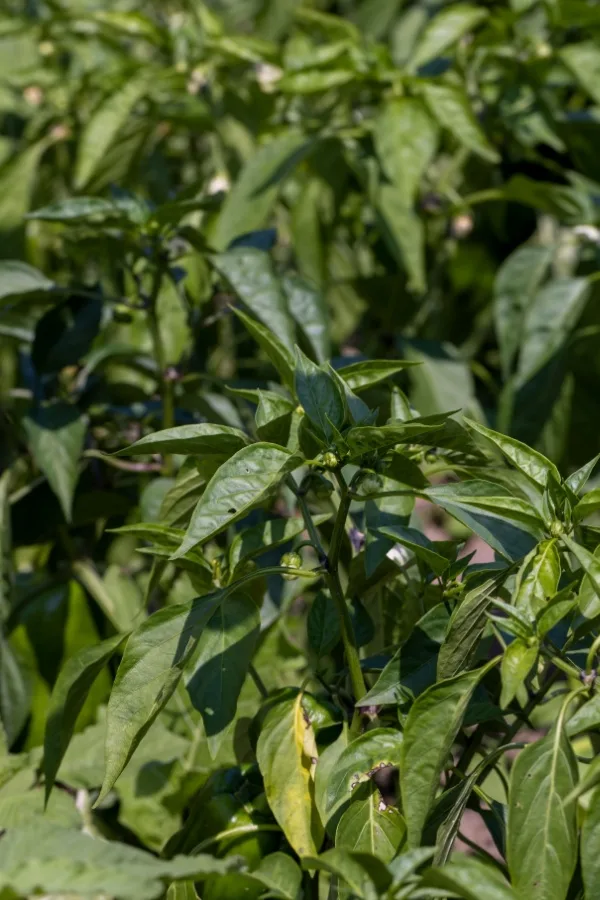Organic Vs. Synthetic Fertilizers: Which Is Best for Supporting Healthy Pepper Plants?
In the world of nurturing healthy and balanced pepper plants, the selection between natural and synthetic fertilizers stands as an essential decision with significant ramifications. While both alternatives goal to provide crucial nutrients to sustain plant development, the nuances of their effect on the dirt, plant health, and the environment trigger a debate that echoes throughout the gardening area. Understanding the distinctive advantages and possible risks of each fertilizer type is vital for pepper cultivators looking for to maximize their returns while keeping an eco-conscious and lasting method.
Advantages of Organic Fertilizers
Organic plant foods offer a lasting and environmentally-friendly method to beneficial pepper plants, supplying necessary nutrients without making use of synthetic chemicals. These all-natural fertilizers are stemmed from organic resources such as garden compost, manure, bone meal, and seaweed, promoting dirt wellness and biodiversity. Unlike synthetic fertilizers, organic alternatives release nutrients gradually, making sure a balanced and steady supply for pepper plants to grow.
One significant benefit of organic fertilizers is their ability to improve dirt structure and water retention. By boosting dirt health and wellness, natural plant foods advertise advantageous microbial activity, which helps in nutrient uptake by pepper plants. In addition, organic plant foods reduce the risk of chemical run-off, shielding water sources from contamination and protecting the atmosphere.
In addition, organic fertilizers add to long-term dirt fertility by advertising the growth of valuable dirt microorganisms. These organisms aid break down raw material, releasing nutrients in a type that is easily obtainable to pepper plants. best fertilizers for peppers. By fostering a healthy soil community, natural fertilizers sustain sustainable pepper growing methods that benefit both plants and the environment
Disadvantages of Artificial Plant Foods
Artificial plant foods, in contrast to their natural counterparts, position numerous drawbacks when made use of to nurture pepper plants, affecting both plant health and ecological sustainability. One major drawback of artificial fertilizers is their tendency to seep nutrients from the soil swiftly. This fast leaching can lead to nutrition inequalities in the soil, triggering plants to endure from toxicities or deficiencies. In addition, synthetic plant foods can hurt helpful soil microorganisms, such as earthworms and beneficial germs, disrupting the dirt environment's equilibrium.
In addition, the overuse of synthetic plant foods can add to water contamination. Excess plant foods not taken in by plants can remove into water bodies, bring about eutrophication, where algae blossoms deplete oxygen degrees in the water, damaging aquatic life. Artificial plant foods are commonly derived from non-renewable sources, such as fossil fuels, contributing to carbon discharges and ecological degradation throughout their production.
Nutrient Absorption Contrast
When comparing natural and artificial plant foods in terms of nutrient absorption, natural fertilizers have the advantage of supplying an extra balanced and slow-release resource of nutrients. Organic plant foods include a selection of macro and trace elements that are not only useful for the plants but also promote healthy dirt microbial task, which assists in nutrient uptake.
Furthermore, organic plant foods improve soil framework and water retention capability, enabling pepper plants to access nutrients much more effectively. This enhanced dirt quality assists in origin development, allowing better nutrient absorption. Artificial plant foods, although originally improving plant development due to their high nutrient concentrations, may hinder lasting nutrient absorption by degrading soil health with time.
Ecological Impact Considerations

On the other hand, artificial plant foods, although usually more concentrated and promptly readily available to plants, can have detrimental results on the environment if not used appropriately (best fertilizers for peppers). Their production requires high power inputs, click here to find out more leading to greenhouse gas exhausts and contributing to climate modification. In addition, the drainage of excess artificial plant foods can pollute water resources, bring about eutrophication and damaging marine ecological communities.
Ideal Plant Food Practices for Peppers
When fertilizing pepper plants, maximizing nutrient uptake and decreasing ecological influence are Recommended Site key factors to consider. To achieve this, it is necessary to follow best plant food methods tailored to the details needs of pepper plants. One vital method is to carry out a dirt test before using any plant foods. This examination can determine the pH degree of the soil and determine any kind of nutrient deficiencies, directing you in picking the most suitable plant food formula.
Another vital method is to feed pepper plants at the correct time. Generally, peppers gain from obtaining fertilizer at growing and then again when they begin to flower. Over-fertilizing can cause nutrient discrepancies and damage the plants, so it is vital to comply with recommended application rates.
In addition, picking a balanced fertilizer with an NPK proportion that matches pepper plants' demands is essential. Organic plant foods, such as compost or manure, can be excellent selections as they release nutrients gradually and improve soil framework over time. Artificial fertilizers can offer a quick nutrient increase when required. Eventually, combining artificial and natural fertilizers carefully can assist nurture healthy pepper plants while decreasing ecological impact.
Verdict
:strip_icc()/BHG-Growing-Peppers-Indoors-EzgaEnB7KML9Ym_plkvuxK-9398f1341d86483083862533ae7622db.jpg)
Organic fertilizers supply an environmentally-friendly and sustainable strategy to beneficial pepper plants, supplying crucial nutrients without the use of synthetic chemicals. Unlike synthetic fertilizers, natural alternatives launch nutrients gradually, making sure a stable and balanced supply for pepper plants to flourish.
Synthetic fertilizers, in contrast to their natural counterparts, position different negative aspects when utilized to nurture pepper plants, impacting both plant health and wellness and environmental sustainability. When contrasting organic and artificial fertilizers in terms of nutrient absorption, natural fertilizers have the benefit of offering an extra well balanced and slow-release resource of nutrients.Moreover, natural fertilizers improve dirt structure and water retention capability, permitting pepper plants to gain access to nutrients a lot more efficiently.